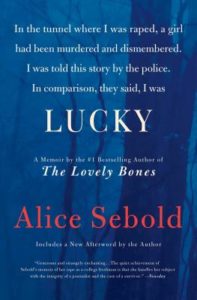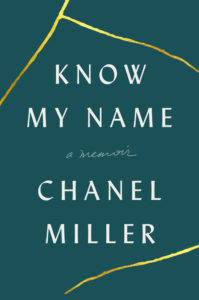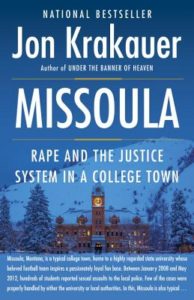This fall, American college students are returning to a university life that’s been utterly transformed by the coronavirus pandemic. But whether they’re moving into dorms or checking in online from their childhood bedroom, they’re still feeling the age-old emotions of excitement and apprehension.
Did they pick the right university, the right courses, the right professors? Will they make the connections they need to succeed? And how will they cope with pressures and temptations?
They’re not likely to worry about violence. But, as these six extraordinary books reveal, students can fall victim to predators during the most routine of college activities—searching for a book in the library, walking home from a party, sleeping in a dorm room. Even professors aren’t immune to the will to kill. Privilege, ineptitude and prejudice can stand in the way of justice, worsening the devastation.
These books are shocking, but they aren’t written to titillate. The authors seek to unravel a mystery, chronicle personal loss, expose injustice—or all of the above. In each case, they succeed.
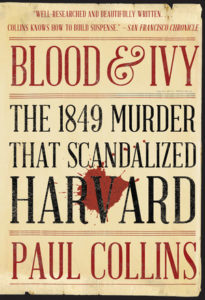
Blood & Ivy: The 1849 Murder That Scandalized Harvard, by Paul Collins
Dr. George Parkman, mighty rich and mighty prone to act like it, enjoys a routine. He likes to put on a silk top hat, grab a cane, and stroll around 1840s Boston. Perhaps he’ll pop in at an imposing building to harass his bankers or inspect the many buildings he owns in the West End. Then one Friday afternoon he doesn’t come home. Very mysterious.
It doesn’t take long for body parts to show up in a Harvard Medical School laboratory. A chemistry professor falls under suspicion, a surprisingly advanced forensic investigation is launched, and a murder trial awaits.
Paul Collins, one of America’s best historic true-crime authors, expertly brings everyone and everything to life—the victim, the suspect, the university, and the captivated city. Don’t miss the cameo appearances by the likes of Charles Dickens, Henry Wadsworth Longfellow and medical curiosity Phineas Gage.

Murder in the Stacks: Penn State, Betsy Aardsma, and the Killer Who Got Away, by David Dekok
The library should be one of the safest places on campus, a peaceful refuge devoted to the pursuit of knowledge and an occasional comfy-chair snooze. But on a November day in 1969, shortly after Thanksgiving, Penn State grad student Betsy Aardsma went to the campus library to research a paper and was stabbed her to death as other students studied nearby.
David Dekok, a former investigative journalist who graduated from high school in Holland, Mich., a few years after Aardsma, draws on his reporting skills to paint a compelling portrait of a young woman who sought to escape small-town values, a “modern, educated, outward-looking young woman who embraced the cultural and political changes of the 1960s.” As Dekok notes, a pastor’s preachy sermon at her funeral still rankles attendees because it failed to provide healing or understand her character.
Dekok identifies the apparent killer—a smart but deeply disturbed student from a similar background as Aardsma—and exposes the price paid by future generations when law enforcement failed to take the alleged murderer off the streets.
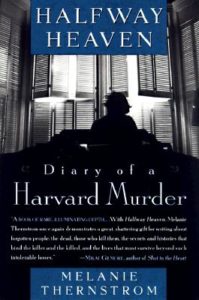
Halfway Heaven: Diary of a Harvard Murder, by Melanie Thernstrom
In 1995, toward the end of the school year, The New York Times reported on an Ivy League murder-suicide with a stark headline: “Harvard Student Stabs Roommate to Death.” Sinedu Tadesse, an Ethiopian student, had killed her roommate, Massachusetts native Trang Ho, and then hanged herself. Tadesse had earlier sent a note with her photo to the campus newspaper that said “Keep this picture. There will soon be a very juicy story involving the person in this picture.”
Thernstrom, who initially covered the case for The New Yorker, sensitively unpacks the life of the woman at the center of the case, revealing her to be more than simply a sociopathic stalker. Tadesse, as her writings reveal, is “an intelligent, insightful, strong-willed person using all those capacities to fight as hard as she could for mental health—and losing,” she writes. As for Harvard, Thernstrom contends that the university failed to protect its own at an immeasurable cost.
Lucky, by Alice Sebold, and Know My Name: A Memoir, by Chanel Miller
The rapes that Alice Sebold and Chanel Miller describe in their books aren’t just separated by more than three decades. They’re also divided by a culture-wide reckoning with sexual violence that was prompted, in part, by Sebold’s groundbreaking Lucky, published in 1999.
The books are linked in many ways, and not just by the courage of the authors and their visceral depictions of the attacks and their traumatic aftermaths. Sebold, best known for her novel The Lovely Bones, and first-time author Miller share an extraordinary skill: the ability to reflect on the sudden, stunning transition from before to after.
Sebold, who was raped near Syracuse University in 1981 at the age of 19, titled her memoir after the word a police officer used to describe her after the attack. She was “lucky,” he said, because a woman had been murdered earlier.
Nearly immediately, Sebold knew her life had changed. As friends tried to comfort her, she writes, “I had begun to notice that I was now on the other side of something they could not understand. I didn’t understand it myself.”
Miller was raped by Stanford University student Brock Turner in 2015 outside a fraternity party. Her case sparked outrage when Turner, a star athlete, received a light sentence. “My damage was internal, unseen, I carry it with me,” she wrote in a sentencing-hearing letter that went viral. “You took away my worth, my privacy, my energy, my time, my safety, my intimacy, my confidence, my own voice, until today.”
In 2019’s Know My Name, an unshackled Miller reveals her identity for the first time and boldly points to those who failed her—the media, the justice system, the university, and a culture that blames victims and props up the rich. As The Washington Post puts it, “Know My Name” is a gut-punch, and in the end, somehow, also blessedly hopeful.”
Missoula: Rape and the Justice System in a College Town, by Jon Krakauer
Jon Krakauer is best known for his best-selling outdoor books Into the Wild and Into Thin Air, but he’s also drawn to true crime. In this scathing and powerful 2015 book, he accuses the college town of Missoula, Mont., of failing the victims of sexual assault by dismissing victims and refusing to properly prosecute assailants. As Krakauer explains, Missoula is hardly an outlier. “When an individual is raped in this country,” he writes, “more than 90 percent of the time the rapist gets away with the crime.”
Krakauer, who profiles Missoula victims and their rapists, mostly keeps his fury in check. But we hear his outrage when he writes about how he discovers how many women he knows have been raped. Their suffering is overwhelming and, he finds, their self-destructive reactions “are often held up as ‘proof’ that they are unreliable and morally compromised, or that they deserved to be raped.” Krakauer calls for reform and an end to “the undeserved sense of shame that is so often borne in isolation.”


